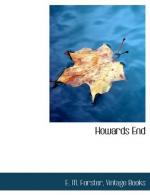|
This section contains 5,288 words (approx. 18 pages at 300 words per page) |

|
SOURCE: Delany, Paul. “‘Islands of Money’: Rentier Culture in E. M. Forster's Howards End.” English Literature in Transition, 1880-1920 31, no. 3 (1988): 285-96.
In the following essay, Delany discusses Forster's “lifelong preoccupation” with the privileged lives of upper-class Britons as revealed in Howards End.
When he was eight years old E. M. Forster inherited eight thousand pounds from his great-aunt Marianne Thornton, who came from a well-to-do family of Victorian bankers. His widowed mother had about the same amount of capital, ensuring him a comfortable home, and a Public School and Cambridge education. The Longest Journey deals with the emotional consequences of this secure and sheltered upbringing; Howards End, though not directly autobiographical, examines Forster's economic origins. The novel's motto, “Only connect …” is usually read as a plea for emotional openness; but Forster is equally concerned with the subtle connections between a class's mentality and how it gets its means...
|
This section contains 5,288 words (approx. 18 pages at 300 words per page) |

|


